Responding to Hurricane Helene
And Our Commitment Ahead
October 3, 2024
Last updated: October 10, 2024
SUPPORTING COMMUNITIES AFFECTED BY HELENE
Hurricane Helene comes as the latest stark reminder of the increasing frequency and severity of storms driven by climate change, which fuels record-breaking storms like Helene. As one of the fastest-intensifying storms in history, it grew from a potential tropical cyclone to a Category 4 hurricane in just five days, wreaking havoc across the southeastern U.S., bringing some of the most devastating impacts to Florida and North Carolina. These events should no longer be regarded as natural disasters but rather as “unnatural disasters”; deaths and damages resulting from our human impact on a changing climate.
AHAH responded in the early moments of Helene’s retreat, deploying teams to Pasco and Madison County, Florida, and Asheville, North Carolina, for field assessments and recovery efforts as soon as it was safe. With nearly 20 years of disaster relief experience, we’ve committed to a year-long relief plan in response to Hurricane Helene, helping rebuild communities impacted by this catastrophe.
Less than two weeks later, AHAH was forced to evacuate from Florida due to Hurricane Milton’s passage through the same region. The menacing storm was the fastest intensifying Category 5 storm in history, fueled by the hottest ocean temperatures on record in the Gulf of Mexico.
The team redeployed to Pasco County as soon as Milton passed the region to resume critical recovery measures, ready to clear debris and assist families left vulnerable by the back-to-back hurricanes.
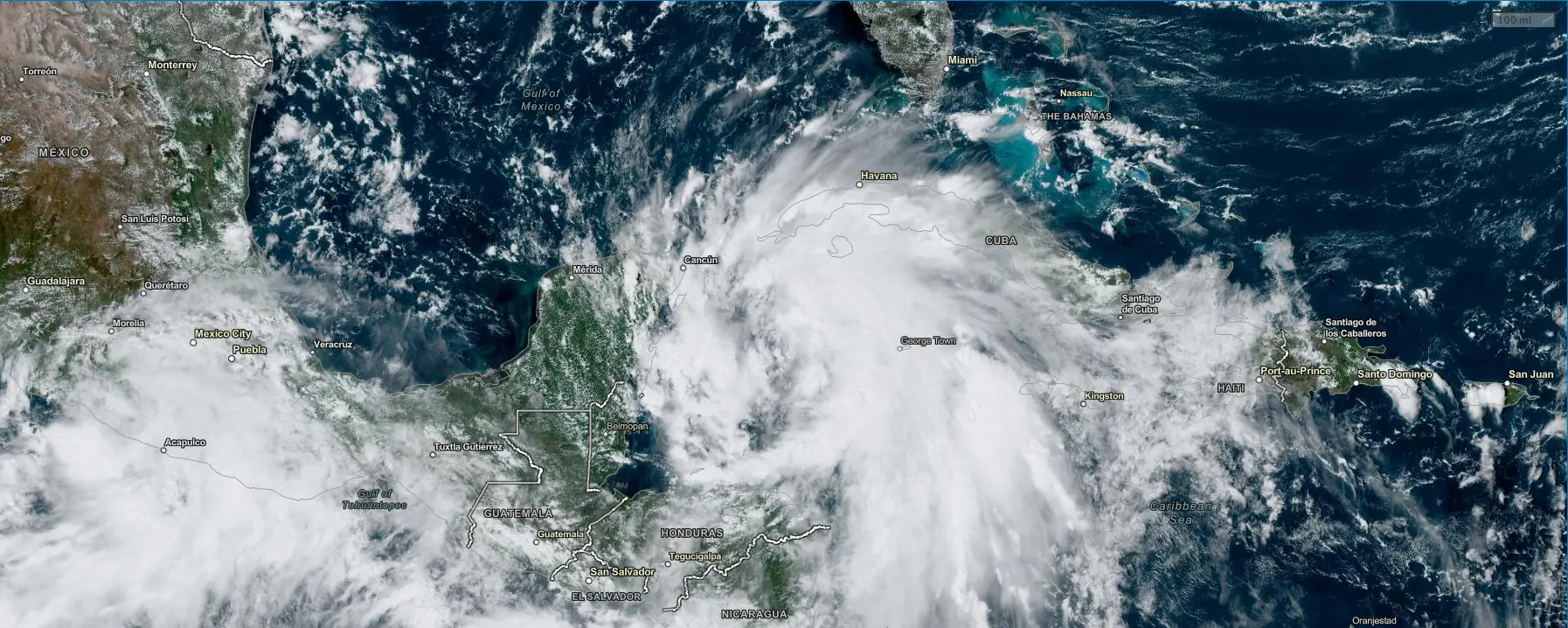
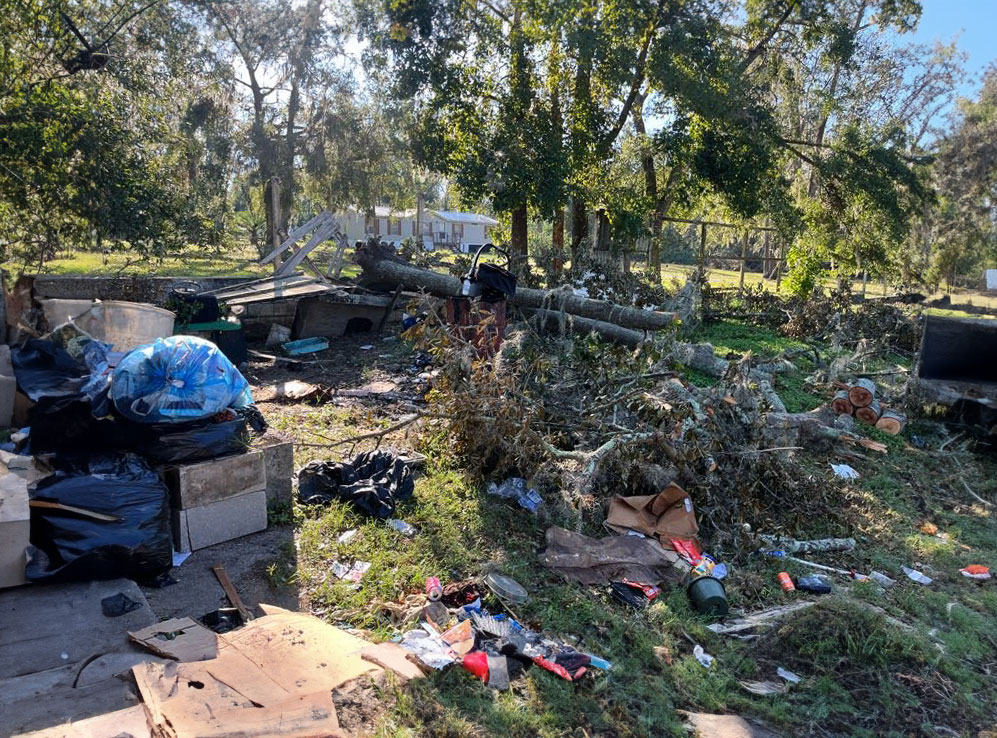
“Here in North Carolina, we’re seeing devastation like some of the worst storms that we’ve seen affect the United States.”
JESS THOMPSON, CEO, ALL HANDS AND HEARTS
RECORD-BREAKING STORM WITH WIDESPREAD IMPACTS
Helene began as a tropical wave in the Atlantic but quickly developed into a tropical depression on September 20, 2024. Fueled by unusually warm waters in the Gulf of Mexico, Helene rapidly intensified to a major Category 4 hurricane by September 25, just before making landfall in Florida’s Big Bend region with a 15-foot storm surge on September 26. The impacts from Helene extended far inland to western North Carolina, Tennessee and Georgia.
Asheville, North Carolina, an astonishing 300 miles inland and at an elevation of 2,134 feet, was one of the hardest-hit cities in the nation, experiencing unprecedented amounts of rainfall and flash flooding that washed away entire neighborhoods. The crippling wind and extensive flooding created a widespread loss of access to roadways, power, cell service, drinking water and fuel, all while the death tolls continued to rise. A federal emergency was declared across six states due to the storm’s destruction. Helene’s extraordinary aftermath necessitated immediate action and fast, efficient relief.
RAPID RESPONSE
In advance of the forecasted intensity of Hurricane Helene, AHAH staged teams ready to deploy in the storm’s wake. This preparation allowed AHAH to mobilize multiple Disaster Assistance Response Teams (DART) to North Carolina and Florida within two days of Helene making landfall, assessing the impacts and providing immediate support to affected communities. Many affected communities either did not have the resources to be fully prepared for the severity of these impacts or had historically never seen hurricane damage to this degree. AHAH is working with communities that have been cut off from essential resources due to the storm, focusing support where it is most urgently needed.
Rapid mobilization allowed teams to quickly address the immediate needs of communities, supporting homeowners in Florida and North Carolina by completing over 60 assessments and mucking, gutting and removing hazardous debris at over 20 sites in the first week of responding.
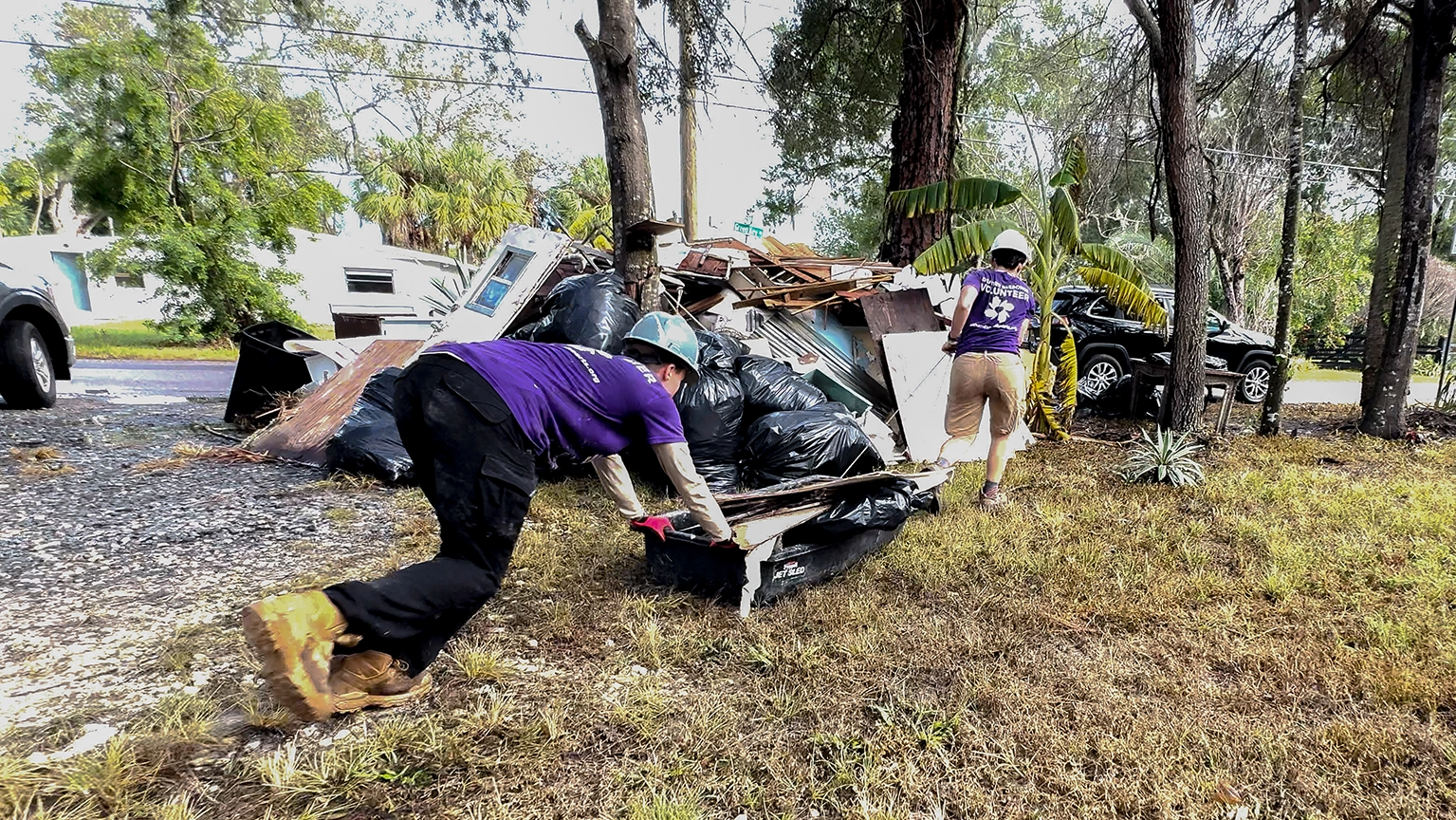
PROVEN TRACK RECORD
For the past two decades, AHAH has responded to some of the most devastating storms in U.S. history, including Hurricanes Katrina, Harvey, Irma, Maria, Dorian and Ian. Our approach includes both immediate relief efforts and sustained recovery initiatives that extend for months or even years after a disaster strikes. Following Hurricane Harvey, AHAH spent three years focused on rebuilding homes and schools. In Florida, AHAH has been supporting communities in Fort Myers and the surrounding area affected by Hurricane Ian since 2022. This commitment ensures that affected populations receive ongoing support as they work to rebuild their lives and infrastructure, after losing so much in just a few hours or days during the disaster.
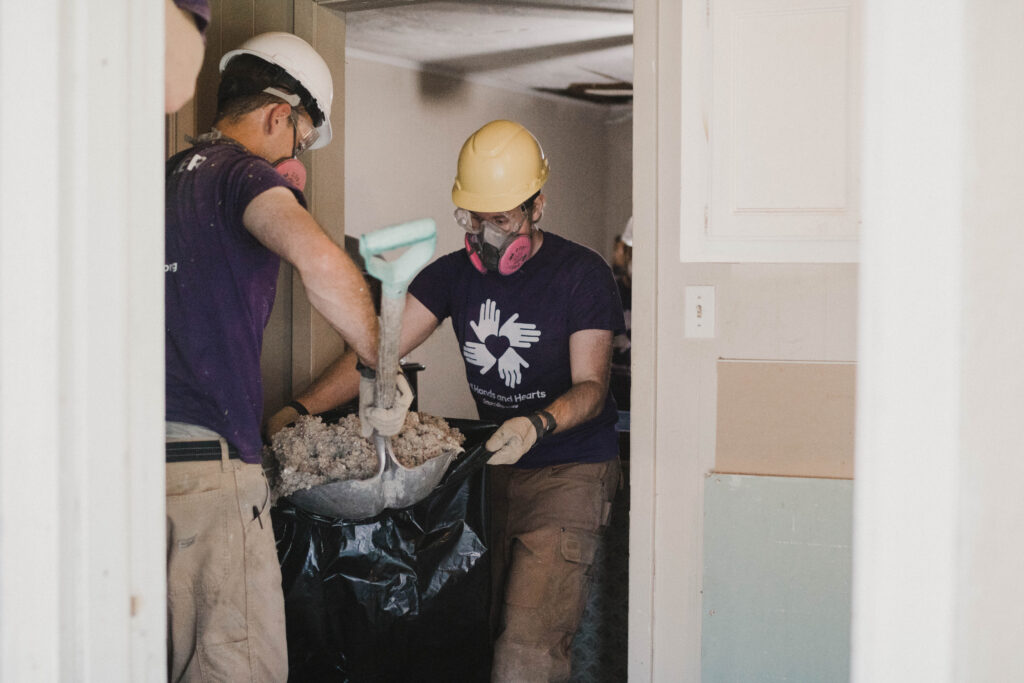
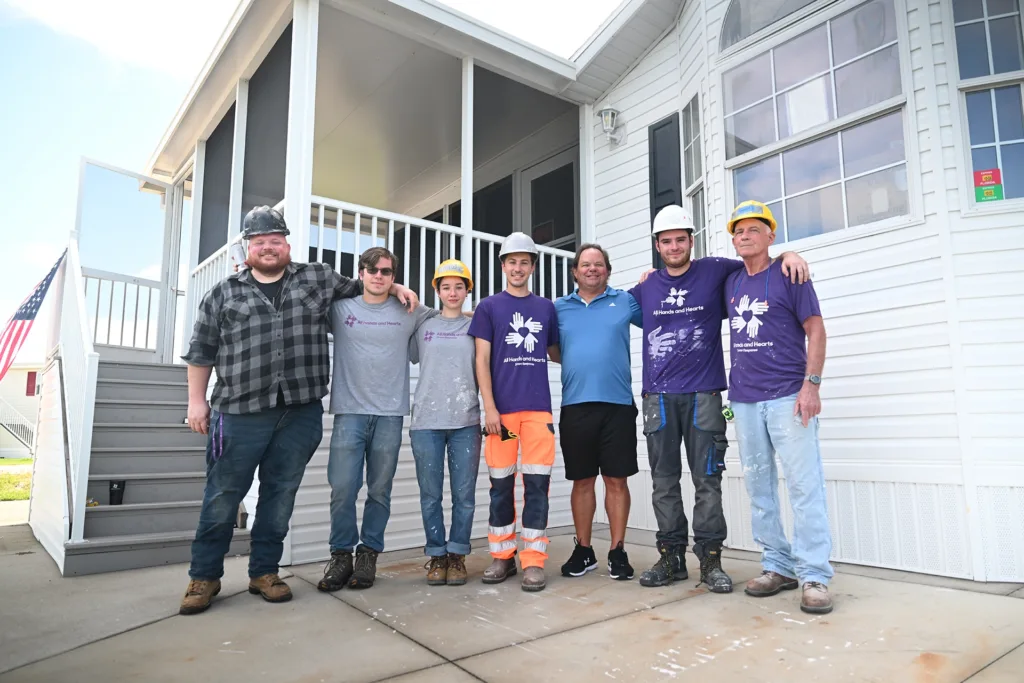
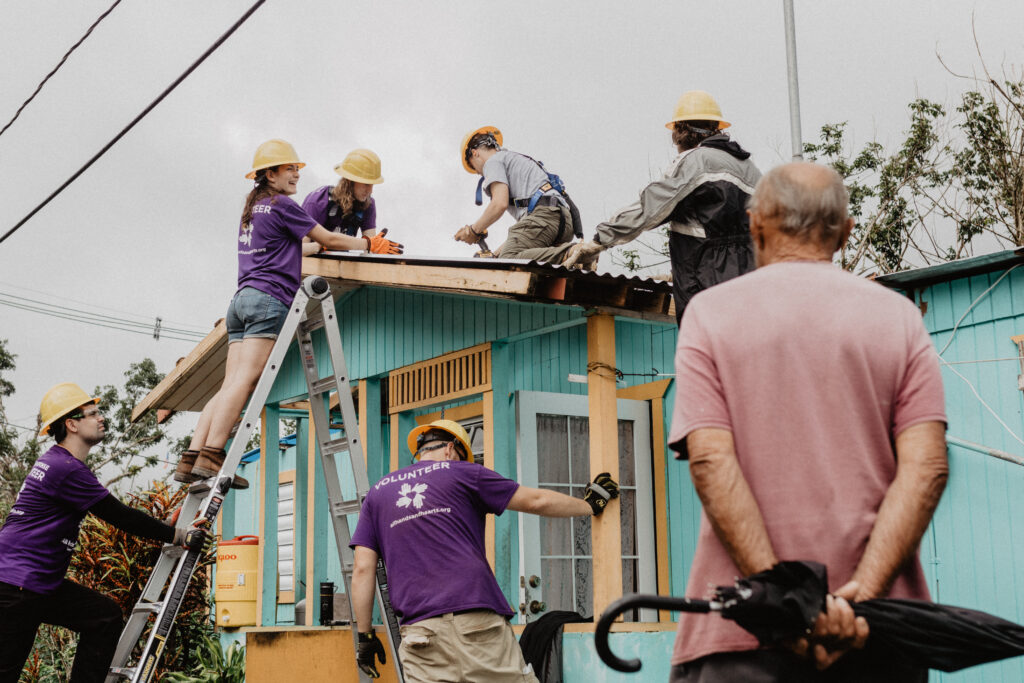
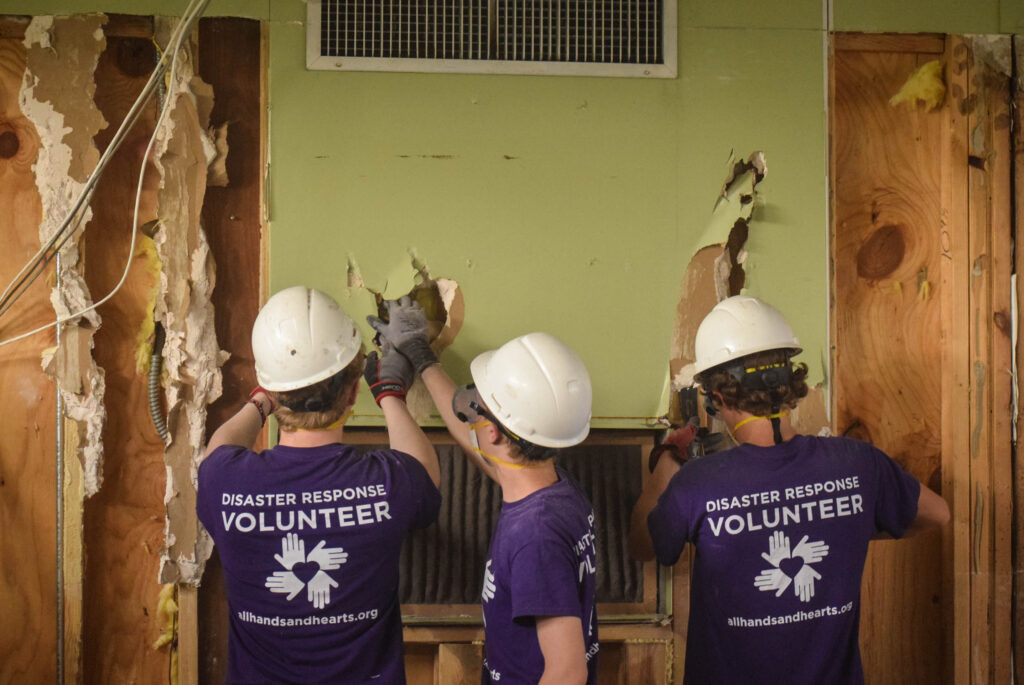
OUR LONG-TERM RELIEF COMMITMENT
AHAH will be on the ground for at least 12 months following this latest disaster. We will be in the hardest-hit areas, focusing on immediate property cleanups, clearing hazardous debris, rebuilding critical infrastructure and restoring safe, livable spaces that are resilient to future disasters. With our specialized approach that combines rapid response with sustained relief efforts, we are here to sustain communities’ recoveries as the needs change over the coming months. By working alongside local partners, organizations, volunteers and community leaders, we aim to restore hope and resilience, long after the headlines fade.
Please consider supporting communities in their recovery ahead. You can make your donations for Hurricane Helene today or volunteer with us to help rebuild lives after this catastrophe.














